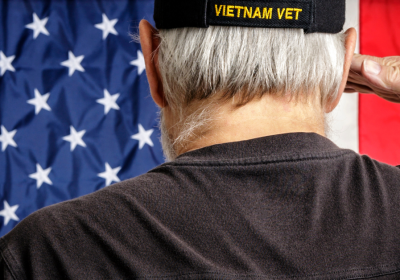A significant lawsuit filed in November 2022 has brought serious allegations of systemic discrimination against the Department of Veterans Affairs (VA) to the forefront. The lawsuit, filed on behalf of Conley Monk, Jr., a 74-year-old former Marine, contends that the VA has historically discriminated against Black veterans in the processing of their disability compensation claims.
The basis for this lawsuit partly rests on a statistical analysis of VA records spanning two decades, from 2001 to 2020. According to the findings of a university statistician who examined this data, a notable disparity exists in the rate at which disability compensation was granted. The analysis reportedly concluded that, on average, 30.3% of Black veterans were granted disability compensation, compared to an average rate of 37.1% for White veterans during this period.
Mr. Monk Jr.’s personal experience, as detailed in the lawsuit, further underscores these allegations. Despite developing Post-Traumatic Stress Disorder (PTSD) stemming from his service in Vietnam nearly 50 years prior, the VA allegedly improperly denied his applications for critical benefits, including education, housing, and disability compensation. This denial persisted even after a psychiatrist’s diagnosis in 2011 directly linked his PTSD to his Vietnam service. It was only after a military upgrade of his discharge status that the VA eventually granted him some benefits in 2015 and 2020. However, the lawsuit argues that Mr. Monk Jr. was never fully compensated for the significant harm caused by these repeated denials.
The Profound Impact of Alleged Discrimination
The lawsuit poignantly describes the suffering endured by Mr. Monk Jr. due to the VA’s alleged discriminatory conduct. “VA’s tortious conduct caused Mr. Monk to suffer periods of housing insecurity, financial hardship, and difficulty accessing proper medical care. He suffered severe emotional harm when he was forced to repeatedly relive the most traumatic moments of his life as part of his applications and re-applications for disability compensation. And he suffered dignitary and reputational harm as a result of VA’s discriminatory actions,” the suit states.
VA’s Response: The Equity Action Plan
In response to concerns about disparities in benefits access, the VA has recently released an Equity Action Plan. This plan outlines the agency’s strategy to identify and dismantle barriers that have historically underserved certain groups of veterans, including racial minorities and LGBTQI+ individuals. Notably, the plan specifically addresses mental health benefits for Black veterans, aiming to understand historical disparities and implement appropriate adjustments moving forward.
Understanding Service-Related PTSD: A Key Factor in Disability Claims
It’s crucial to understand the nature of service-related PTSD, a condition at the heart of Mr. Monk Jr.’s experience and many other veterans’ disability claims. Historical misconceptions surrounding PTSD, prevalent before the 1990s, often portrayed individuals with the condition inaccurately. Modern science has since established that PTSD is a predictable and treatable condition rooted in the physical impact of extreme stress on the brain.
Common symptoms of PTSD include:
- Anger
- Hypervigilance
- Depression
- Flashbacks
- Nightmares
Scientifically, PTSD is understood not merely as a processing disorder but as a physical brain injury. Intense stress leads to changes in brain chemistry, causing the cerebral cortex (responsible for logical responses) to shrink and the amygdala (controlling emotional responses) to enlarge. These physical changes are akin to those observed in traumatic brain injury.
Fortunately, numerous effective treatment options are available for veterans with PTSD. While some medications can have significant side effects, many individuals find relief through milder medications combined with various forms of therapy. Individual therapy focuses on helping veterans identify and manage PTSD triggers, while group therapy provides a vital sense of community and shared experience. Creative outlets, such as art therapy, are also frequently incorporated into treatment plans.
VA Disability Benefits for PTSD
The VA typically assigns disability ratings for PTSD based on the severity of the veteran’s symptoms, ranging from 10% to 100%. Veterans with partial disabilities who are unable to work may still be eligible for full disability benefits under the Total Disability due to Individual Unemployability (TDIU) rating scheme.
A successful VA disability claim for PTSD generally includes a monthly cash stipend and free medical treatment at any VA medical facility. Importantly, cash benefits are usually retroactive to the filing date of the claim and, in some instances, may even be backdated to the onset of the disability. While the VA has aimed to streamline the claims process, the increasing number of veterans seeking disability benefits means that claims can still take several months or longer to be fully processed, potentially resulting in substantial back pay for successful claimants. The medical care benefits offered through the VA are often paramount, providing access to doctors who specialize in understanding and treating service-related PTSD.
The Crucial Role of a VA Disability Attorney
A knowledgeable VA disability attorney plays a vital role in helping veterans navigate the complexities of the claims process and maximize their disability ratings. PTSD claims are a prime example of how easily veterans can unintentionally undersell the severity of their symptoms, potentially leading to a lower rating than they deserve. Often, a veteran’s resilient “can do” attitude can make them hesitant to fully articulate the impact of their PTSD.
VA disability attorneys are skilled at conducting thorough interviews with friends, family members, and others close to the veteran. These individuals can often provide a more objective and comprehensive picture of the veteran’s daily struggles with PTSD. If a claim is initially denied, an attorney can be instrumental in gathering additional evidence and building a strong appeal.
Without a doubt, an attorney serves as a valuable partner throughout all phases of a disability claim. For a free consultation with an experienced veterans disability lawyer, contact Cameron Firm, PC at 800-861-7262, or fill out the contact box on our website. We are dedicated to representing veterans nationwide.
Disclaimer: This article is for educational and marketing purposes only. Therefore, it does not create an attorney-client relationship. You should consult with a qualified attorney regarding the specifics of your situation.



